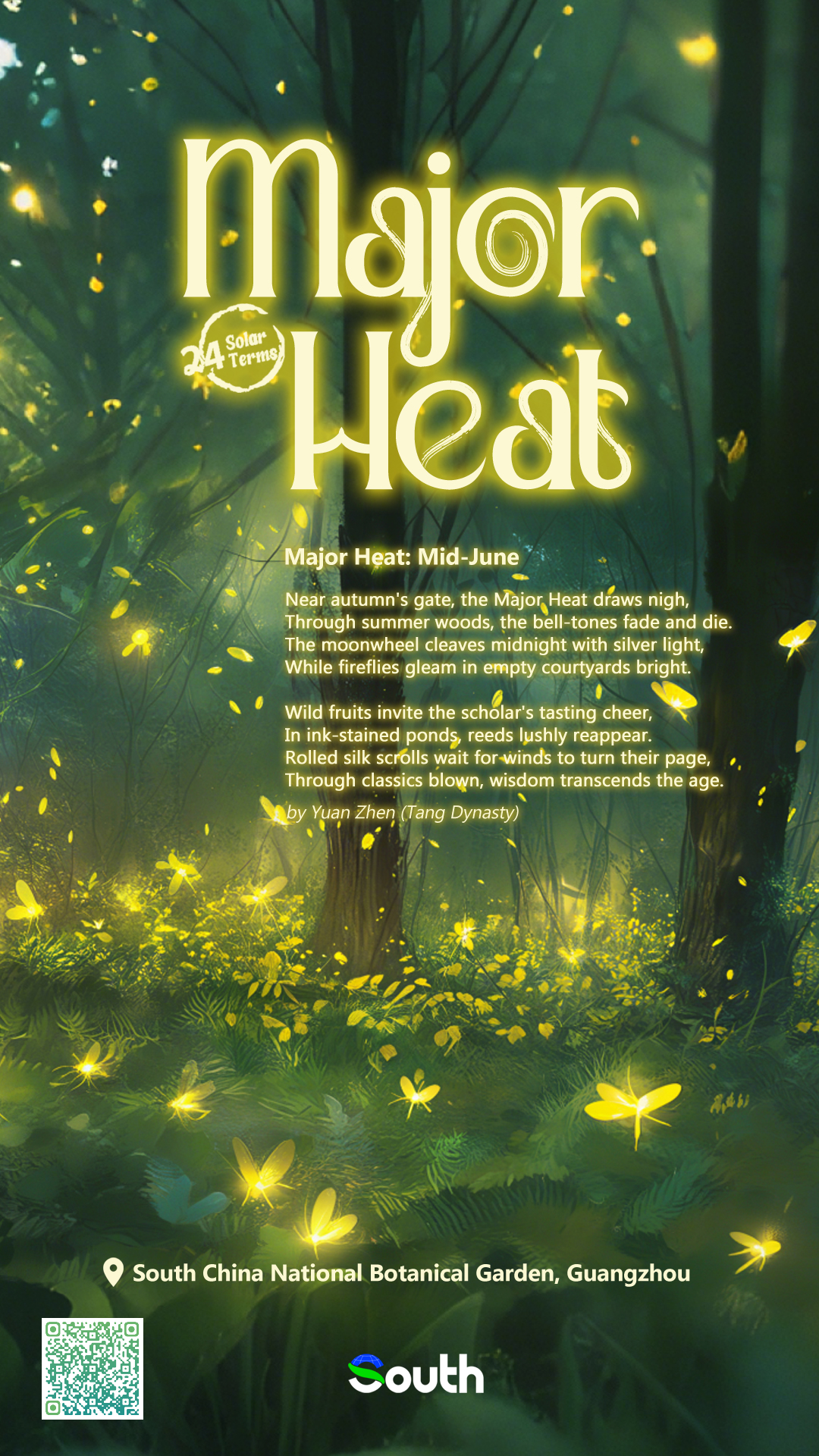
As southern China enters the "Major Heat" period this week, Guangdong province is preparing for its hottest days of the year. Daytime temperatures are forecast to hit 35 degrees Celsius across the Pearl River Delta region, with humidity levels making it feel closer to 40 degrees.
This solar term, the twelfth in China's traditional agricultural calendar, has long been divided into three distinct phases by ancient observers. The first sees fireflies appearing in grassy areas, followed by rising humidity that saturates the soil. The cycle concludes with thunderstorms that typically bring some relief from the oppressive heat.
Outdoor workers and those in high-temperature environments face significant heat exposure risks. Employers should implement heat prevention measures, including providing beverages like mung bean soup (which clears heat and replenishes fluids), five-flower herbal tea (which reduces inflammation), and light salt water (which restores electrolytes). Regular hydration and scheduled breaks in shaded areas are critical to prevent heatstroke.
A Cantonese proverb popular in Guangdong states: "Eat immortal grass in June's Major Heat, live like a deity without aging." The "immortal grass" refers to Mesona chinensis (凉粉草), a dual-purpose medicinal herb. Its dried stems and leaves are boiled to create grass jelly (烧仙草), a gelatinous dessert similar to turtle jelly. Renowned for its exceptional cooling properties, this treat—locally called liángfěn (凉粉)—is scientifically proven to mitigate heat stress by lowering body temperature and providing hydration.
During intense summer heat, many people rapidly gulp down iced drinks for quick relief—a practice that significantly weakens digestive vitality according to traditional medicine. Consequently, dietary choices should prioritize cooked and warm foods while minimizing raw or chilled items.
During Major Heat's intense heat, the body's yang energy disperses toward the skin's surface. Excessive sweating depletes vital energy, increasing the risk of fatigue. As stated in the Yellow Emperor's Classic of Internal Medicine: "Nurture yang in spring and summer." Thus, low-intensity activities like calligraphy, tea ceremonies, or light gardening are recommended over strenuous exercise. These practices conserve energy while promoting mental calmness.
Author: Feng Huiting
Poster: Feng Huiting
Editor: Huang Qini, James, Shen He






